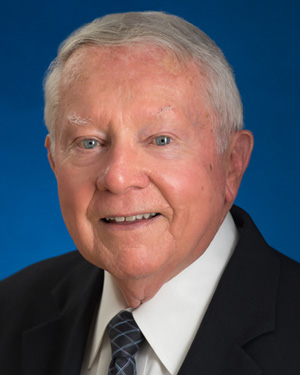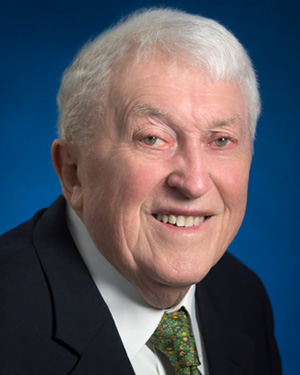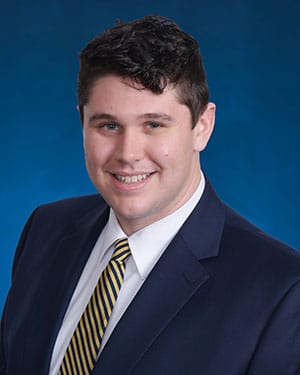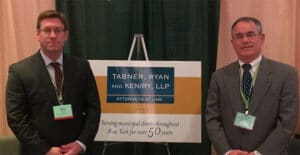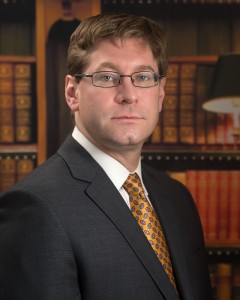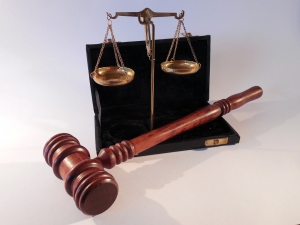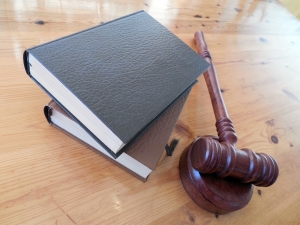Part II: Practice Tips
Requesting and Preparing for the SCPA 1404 Examination in New York
To challenge a will, you have the option to file objections either on or before the return date of the probate citation or after a SCPA 1404 examination. You must generally make this election on or before the first appearance.
There are several advantages to requesting a SCPA 1404 exam prior to filing objections. The major advantage is that the estate has to pay the costs of the exam and the stenographer fees. The exam will also provide you with the opportunity to conduct pre-objection discovery to assist in preparing objections. On the other hand, if you elect to depose a witness prior to filing objections, you generally cannot re-examine the same person again after filing objections.
If you desire a pre-objection exam, you should make this request at the first appearance and discuss a proposed schedule with the court at the same time. The schedule is generally limited to dates for pre-objection document demands and responses, the date for the exam (which will be conducted at the court), and the date for filing objections after the exam.
Prior to the exam, you should specify the witnesses you intend to examine. Such persons generally include the attesting witnesses and the person who prepared the will (see SCPA 1404 [4]).
To prepare for the exam, you should demand documents in advance, requesting the decedent’s financial records, communications, medical records, and prior wills, among other things. You should also request the case file of the drafting attorney, including billing records and any retainer agreements (see CPLR 4503 [b]; SCPA 102).
The rights to pre-objection document discovery are set forth in SCPA 1404(4), which provides that “the party conducting such examination” has “all rights granted under article 31 of the civil practice law and rules with respect to document discovery.” Generally, courts permit broad inquiry into the “three-year period prior to the date of the propounded instrument and two years thereafter, or to the date of the decedent’s death, whichever is the shorter period” (22 NYCRR 207.27).
The exam should focus on all matters relevant to the filing of objections. You should inquire about the witnesses’ involvement and relationship with the decedent, the decedent’s mental health, and the circumstances of the will’s execution, among other things.
The Possible Grounds to Object: Undue Execution
The first possible ground to object is undue execution. This objection focuses on the will’s technical non-compliance with the formalities set forth in EPTL § 3-2.1.
For example, the statute requires the decedent to sign the will at the end, declare to each of the attesting witnesses that the instrument is his will, and use at least two attesting witnesses. In reviewing the will and cross examining the attorney and witnesses, you should pay attention to the location of the decedent’s signature on the will, as well as any communications between the decedent and others present. Check to see if the decedent declared the document to be his or her last will and, if so, how. Check to see if the decedent signed the will in the witnesses’ presence or otherwise published his signature to the witnesses. Make sure the witnesses also signed the will and the dates of the signatures.
You should also review an administrative check list and other practice guides on estate administration. This will help you outline the various issues involved and help provide you with grounds to challenge the will, even if technically compliant with the statute.
These check lists and practice guides, for example, recommend that the client initial each page. They also caution practitioners against removing staples to make photocopies. Among other things, these circumstances may create doubt as to the will’s validity. One may conclude that the will does not contain the same pages as those executed by the decedent or that the decedent did not read its contents. These circumstances may obtain even greater weight as the case develops, especially depending on the specific cast of characters involved, such as the character of the beneficiaries, the drafting attorney and the witnesses.
The Possible Grounds to Object: Capacity
Another major objection concerns the decedent’s testamentary capacity. A person is presumed to have sufficient mental capacity to make a will. In addition, an attesting affidavit and the supervision by an attorney also create a presumption of testamentary capacity.
The level of capacity required is a mere simple understanding of the disposition. Specifically the decedent must (1) generally understood the nature and consequences of executing a will, (2) generally know the nature and extent of the property that he or she is disposing of, and (3) generally know the natural objects of his or her bounty, and his or her relations with them.
Given this standard, you should focus on ascertaining the extent of the decedent’s communications, his appearance, demeanor, and responsiveness at and around the time of the will execution. You should examine the complexity of the will, how it was communicated to the decedent, and the level of sophistication of the decedent. You should also inquire about the interactions between the decedent and others present, whether the decedent’s family was discussed at any time, including the day of the will ceremony, and whether the attorney prepared a family tree or took notes about the decedent’s relations with others. Attorney billing records and the decedent’s phone records and emails may also reflect the level of contact the attorney had with the decedent.
An advocate of the will’s admission to probate will attempt to argue that the decedent was lucid and rational at the time the will was made, and that the decedent communicated effectively, knew who he or she was talking to and responded appropriately. You should be prepared to challenge the generalized conclusions often asserted by the witnesses about the decedent’s appearance and capacity. You should also review the decedent’s medical records (request authorizations from the estate to obtain them) to determine if the decedent suffered from any cognitive diseases such as dementia and what kinds of medications the decedent may have been taking.
Be careful not to rely too heavily upon on a person’s old age or general diagnosis. Mere proof that the decedent suffered from old age, physical infirmity and chronic, progressive senile dementia when the will was executed is not necessarily inconsistent with testamentary capacity and does not alone preclude a finding thereof, as the appropriate inquiry is whether the decedent was lucid and rational at the time the will was made.
In addition to learning about the decedent’s age and diagnosis, you should inquire about the decedent with neighbors, relatives, and hospital staff to find out whether they observed the decedent at or around the time of the will’s execution and whether they have any stories to share regarding the decedent’s mental status.
The Possible Grounds to Object: Undue Influence
Undue influence provides a basis to invalidate the entire will or a specific bequest. It occurs when a wrongdoer overcomes a decedent’s free will and causes the decedent to make a will or bequest that the decedent would not otherwise have made (see Restatement 3d Property [Wills and Other Donative Transfers], § 8.3 [2003]). The influence may be forceful or alternatively subtle pressure (Matter of Edel, 182 Misc 2d 878, 885 [Surrogate’s Ct, Cattaraugus County 1999]). Look for instances of persuasion or pressure made by the wrongdoer, short of actual force, but stronger than mere advice (see 3-42 Warren’s Heaton on Surrogate’s Court Practice § 42.07 [Lexis 2017]).
To prove undue influence, a party must establish the existence of motive, opportunity, and the actual exercise of undue influence (Matter of Nofal, 35 AD3d 1132, 1134 [3d Dept 2006] [internal quotation marks omitted]). Motive is often financial. Look at the beneficiaries in the will and the dispositions made to them. Then, to establish opportunity, try to establish that the beneficiary, or another acting on the beneficiary’s behalf, had contact with the decedent or the drafting attorney and had prior knowledge about the will or bequest.
To prove the exercise of undue influence, a party may rely on direct evidence – such as testimony from a person who observed the wrongful act. However, as the only witnesses to undue influence are often the wrongdoers, parties generally must rely on circumstantial evidence to prove their case (see Matter of Kotick v Shvachko, 130 AD3d 472, 473 [1st Dept 2015]; Matter of Paigo, 53 AD3d 836, 839-840 [3d Dept 2008]).
Relevant factors to consider include: (1) the nature of the will; (2) the decedent’s family relations; (3) the decedent’s health and mind at the time of the execution of the will; (4) the decedent’s dependency upon and subjection to the control of the person charged with undue influence; (5) the opportunity and disposition of such person to wield it and his acts and declarations in doing so; and (6) the acts and declarations of such person (see Rollwagen v Rollwagen, 63 NY 504, 519-520 [1876]; 9-117 Warren’s Heaton on Surrogate’s Court Practice§ 117.02 [3] [b] [Lexis 2017]).
Additional relevant factors include the following, among others: (1) whether the primary beneficiary selected and/or was associated with the attorney draftsman; (2) whether the decedent was isolated from family and friends; (3) whether the provisions of the will were a departure from the decedent’s prior estate plan; (4) whether the decedent had knowledge of the will’s provisions and was satisfied with them; (5) whether the person(s) charged with undue influence controlled the decedent’s lifetime affairs; (6) whether the person(s) charged with undue influence benefited under the will disproportionately to other beneficiaries; (7) whether the donor received independent advice from an attorney; and (8) whether the will or will substitute was prepared in secrecy or in haste (see 9-117 Warren’s Heaton on Surrogate’s Court Practice § 117.02 [3] [b]; New York State Estate Administration § 3.06 [d] [1] [2012]; Restatement 3d Property, § 8.3, comment h; see e.g. Matter of Elmore, 42 AD2d at 240; Matter of Bach, 133 AD2d at 455).
Well in advance of the SCPA 1404 exam, you should have the client provide witness information, prior wills, and other documents and information relevant to the factors discussed above. You should also serve the preliminary executor with a demand for documents to obtain the estate file, the decedent’s papers, prior wills, and other relevant materials. Then, at the SCPA 1404 exam, you should question the drafting attorney about these documents and the circumstances and factors discussed above.
The decedent’s medical records, telephone records, emails, social media accounts, financial records and authorizations should also be requested from the preliminary executor and subpoenaed at some point, either before or after the 1404 exam. After objections are filed, the attorney should depose the beneficiaries and obtain documents from them to ascertain their involvement with the decedent.
Stay tuned for additional discovery tips and more information on specific objections.





